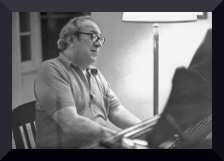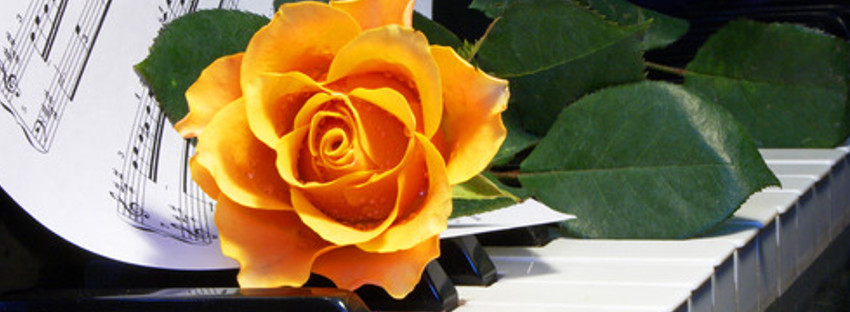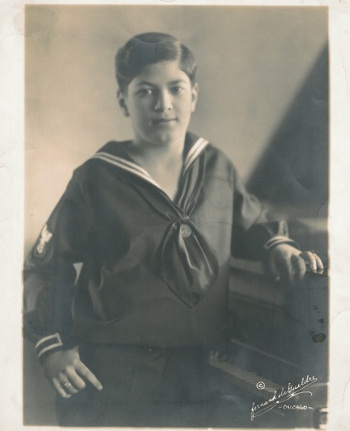About Leonard Shure
Leonard Shure was born in Los Angeles, CA on April 10, 1910 to Jack and Norma Shure. Neither of his parents came from musical backgrounds. They only knew that their son was born with a special gift rarely seen. At age two the young Shure was sent to Vaudeville to sing the music of the day. By age four Shure was already performing Mozart sonatas and by age six he was performing, professionally, works by Liszt and Schumann. By age 12, he was offered a world tour (which he declined feeling that he had much more to learn). All of his American teachers were at a loss for what to do with him until one suggested that he travel to Berlin to study with the great pedagogue, Artur Schnabel. This artistic lineage linked directly to Beethoven. Schnabel was a student of Leschetizky who studied with Czerny who studied with Beethoven, himself. Schnabel was so impressed with the young Shure that he made him his first and only assistant. Shure assisted Schnabel on the elder’s edition of the Complete Beethoven Sonatas but later both were disappointed with the outcome of the project and Shure was known to tell students who brought the Schnabel edition to a lesson to “Throw it away!” preferring the Urtext editions by Kalmus and Henle. |
|
Mr. Shure returned to America in 1933 to make his adult professional debut with Serge Koussevitzky and the Boston Symphony Orchestra performing Brahms Piano Concerto No. 1. When the 23 year old Shure first arrived in Boston he was invited to attend a concert by the BSO.
What he didn't know is that Schnabel had wired Koussevitzky giving him advanced notice of his most talented student. Following the first performance Koussevitzky asked the young Shure to come backstage. "What did you think of the performance?" asked Koussevitzky. They sat down and proceeded to go through the score speaking in the kind of detail only musicians could understand. This went on for several weeks until, one day, Koussevitzky invited the young Shure to appear as a soloist with the Symphony. "But you don't know how I play!" exclaimed Shure. "I already know how you will play." stated Koussevitzky. Shure insisted upon playing for him anyway. On a Saturday afternoon Shure went to Koussevitzky's home and sat at the Maestro's grand piano and began playing the opening theme of the Brahms D Minor Piano Concerto. After only two or three phrases Koussevitzky yelled, "STOP!" Shure, startled, asked what was wrong. Koussevitzky smiled and calmly said, "You see? I TOLD you I knew how you would play." Thus began a beautiful association during which Shure played both Brahms Concertos and, soon thereafter, became the first piano soloist to appear with the BSO at the newly built Berkshire Music Center, now referred to as Tanglewood, the summer home of the Boston Symphony.
Since that time Mr. Shure performed countless recitals and appeared as soloist with most of the world's major orchestras. In the late 70s Mr. Shure toured the Soviet Union to sold out houses in all the major cities. Though his performing career was important to him it was his teaching that fueled his passion and never ceasing growth as a musician. Even though he played some of the same pieces more times than we can count, he always opened the score and re-studied it as if it were the very first time because, like with all great art, there was always more to discover.
As a sought after teacher, Mr. Shure began his adult professional teaching career at New England Conservatory of Music and the Longy School in Boston and Cambridge respectively. From there he moved to Cleveland to take faculty positions at the Cleveland Institute of Music and the Cleveland Music School Settlement. While in Cleveland, Mr. Shure performed as soloist on a regular basis with George Szell and the Cleveland Orchestra. Shure then settled in New York where he taught at the Mannes School and travelled extensively in Europe both teaching and concertizing. In the mid-60s Shure gave the first classes in applied chamber music at Harvard. In 1966 Mr. Shure accepted a faculty position at the University of Texas at Austin where, in addition to many recitals and concertos, he gave a series of 13 master classes that were taped live for the PBS station in Austin. To this day a search is on for anyone that might have copies of this hugely successful venture as the originals were destroyed in a fire. From Austin he was invited by the new President to teach at Boston University and, finally, he devoted the final 15 years of his teaching career, coming full circle, to New England Conservatory where he received an Honorary Doctorate prior to his retirement in 1990.
Leonard Shure passed away after a complicated four year illness on February 28, 1995. His work lives on through the hearts and minds of those lucky enough to have witnessed his work first hand and through many recordings of recitals and concertos over the years. Exciting announcements are forthcoming in efforts to make his work more accessible to the general public.
Visit the “Interesting Facts” page on this site to learn more about Leonard Shure.
If you have a memory of Leonard Shure that you would like to share, please send a note using our convenient Contact Us form. We'd love to hear from you!


